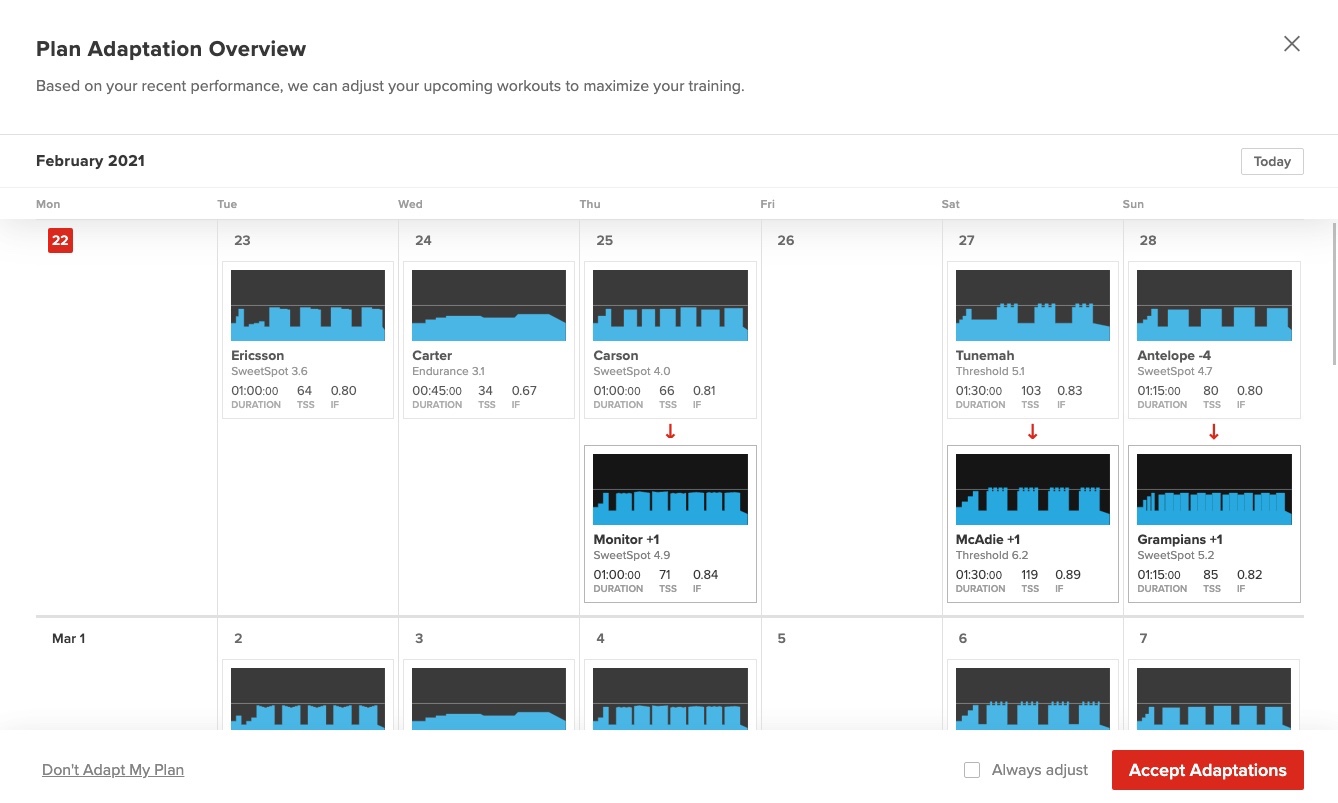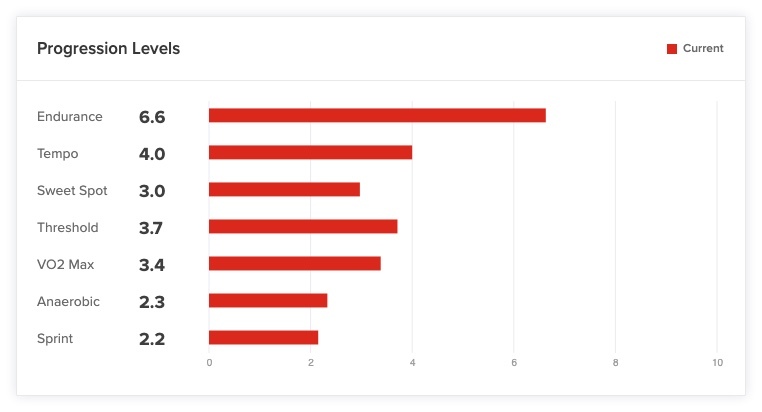TrainerRoad officially launches its adaptive training platform for cyclists
System uses machine learning-powered training to create a greater level of personalization than ever before

While we might not share the same physiological gifts as professional bike racers, it makes sense that we could benefit from similar individualised training programmes. With this in mind, TrainerRoad has launched the Adaptive Training System it teased in February this year.
TrainerRoad, already a market leader in indoor cycling apps, has added the Adaptive Training System to its current set-up to allow, it says, for greater personalization than ever before.
“The full integration of Adaptive Training is the next step in the ongoing development of TrainerRoad’s data-driven training ecosystem,” TrainerRoad Communications Director, Jonathan Lee said. “Thanks to a successful beta testing period, we’ve optimized the Adaptive Training experience and created a tool which puts the power of a seasoned coach in the hands of each TrainerRoad athlete.”
The essence of any adaptive training programme is that it should reflect and respond accordingly to your individual performance and needs. Got a busy week ahead? Recovering from an injury? Progressing quickly in certain areas but struggling in others? Your training plan adjusts to take all of this into consideration, creating new workouts that are best suited to keep you on the path towards success.
But without a coach on hand to monitor and interpret our data on a daily basis most of us instead opt for digital training programmes that are altogether more rigid. Which is where TrainerRoad’s Adaptive Training System comes in. Through its machine learning, science-based coaching principles it generates detailed data that’s then used to train athletes as individuals.

So how does it work? And perhaps, more importantly, how does it differ from other indoor training programmes out there?
The Adaptive Training System uses three levels of training metrics: Progression Levels, Workout Levels and Difficulty Levels.
The latest race content, interviews, features, reviews and expert buying guides, direct to your inbox!
Progression Levels are unique to you and express your Functional Threshold Power (FTP) across seven training zones: endurance, tempo, sweet spot, threshold VO2 max, anaerobic and sprint. These levels are fluid and are based on data collated from your recent performances, training history, workout types and time between workouts. Constantly updated they serve as real time markers of your progression. Update your FTP and your Progression Levels will also update to help you get the workout you need.
Workout Levels use a machine-learning model to create a new metric that incorporates factors such as repetition, interval length and recovery time. It’s displayed as range from 1-10 that goes from easy to hard.
Finally, Difficulty Levels display how challenging a workout will be within a particular training zone. Again, these are ranked from the easiest to the hardest.

TrainerRoad’s Adaptive Training Programme can be used with or without a cycling training programme. If you’re using it without a programme, simply enter the TrainNow section of the app and you’ll be offered three daily recommended workouts - climbing, attacking and endurance - based on your recent training history.
Used alongside a structured training plan, say for a specific event, and you get a custom plan based on your goals, experience and schedule. Adjustments are made using your recent performances and training interruptions.
On the completion of a workout, the Adaptive Training Programme will analyse your performance and update your progression levels accordingly. Interestingly, the system also uses short surveys that you complete after a workout to create qualitative data that, TrainerRoad says, allows for greater personal adaptation.
It’s certainly a different approach from, say Zwift or Wahoo Systm; neither of which currently offer machine-learning driven training to create individualised daily workouts. Still in its infancy, and yet to be tested here at Cycling Weekly, it’s impossible to judge just how successful TrainerRoad’s Adaptive Training Programme could be for you.
However, the numbers they provide based on the beta training period certainly have piqued our interest. According to TrainerRoad users have seen more than a 50% decrease in failed workouts over a year, while being 20% more likely to increase their watts per kilogramme number. Anyone who trains to power will be a little more than intrigued at this substantiated claim.
Like many other systems out there, the TrainerRoad app is available on iOS, Android, Mac and Windows. It’s compatible with over 200 different devices, from smart trainers to power meters to a speed sensor fitted on a traditional indoor trainer.
TrainerRoad and its Adaptive Training System costs $19.99 a month or $189 annually and there is currently a 30-day money back guarantee. For more information, visit TrainerRoad.com
Luke Friend has worked as a writer, editor and copywriter for over twenty five years. Across books, magazines and websites, he's covered a broad range of topics for a range of clients including Major League Baseball, Golf Digest, the National Trust and the NHS. He has an MA in Professional Writing from Falmouth University and is a qualified bicycle mechanic. He has been a cycling enthusiast from an early age, partly due to watching the Tour de France on TV. He's a keen follower of bike racing to this day as well as a regular road and gravel rider.